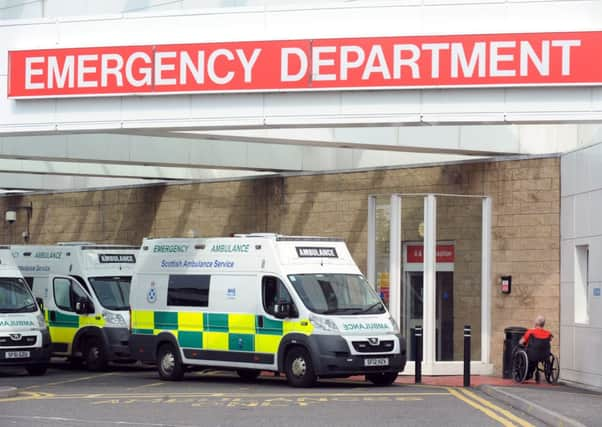Fraud costing NHS £2.2m every day, says expert


The NHS Counter-Fraud Service estimates that £110m – or 1 per cent of the Scottish NHS budget – is lost to fraud every year. But a counter-fraud expert has suggested that the true cost could be as much as £800m a year, or £2.2m every day, based on studies of NHS expenditure.
The figures were revealed in a BBC Scotland investigation, which found that health boards had detected £2m of fraud in the last five years.
Advertisement
Hide AdAdvertisement
Hide AdOver the five-year period, fraud identified by boards increased by 42 per cent.
In NHS Greater Glasgow and Clyde, the total increased from £148,000 to £341,000.
But Jim Gee, former director of counter-fraud services for the Department of Health in London, told the BBC documentary – to be broadcast this evening – that even more could be lost due to theft from the health service in Scotland.
“We currently have 15 years of data covering 14 different types of NHS expenditure. We’re currently finding just under 7 per cent on average of that expenditure is lost to fraud,” he said, adding: “If Scotland is in line with the rest of the world, that’s what I would expect to see.”
Gordon Young, head of the NHS Counter-Fraud Service (CFS) in Scotland, said the service was very good at deterring fraud, which was committed by a small minority of people.
“It’s a hidden crime, it’s a difficult to quantify crime,” he said. “There have been a number of studies and Mr Gee has put fraud between 3 and 8 per cent in any public sector organisation.
“There’s nothing to indicate that the health service would be any different from that. We don’t want to quote massive figures when we can’t fully justify them but the losses are certainly a considerable amount of money.”
Mr Gee put the figure of losses at between £300m and £800m, which he said was an enormous amount of money being diverted from patient care.
Advertisement
Hide AdAdvertisement
Hide Ad“My experience of the CFS in Scotland is that they’re very effective but I don’t think they have the resources they need to have the impact they would like to have,” he said.
The programme claims that almost 90 per cent of money recorded as fraud was never recouped by the NHS. In the last five years, only 33 people – or 5 per cent of those reported for fraud – were convicted.
The documentary highlights cases including that of anaesthetic assistant Douglas Stevenson who was convicted of stealing supplies which he then sold on eBay. He was working at the Royal Hospital for Sick Children in Glasgow when he was sentenced to 20 months in jail and struck off.
The programme also outlines the case of GP Susan McKinnon in Greenock who was convicted of fraud after writing prescriptions for drugs which she collected and used herself.
In a final case, Stuart Craig, a dentist from Auchinleck, Ayrshire, was struck off and convicted of fraud after being found claiming for using precious metals in crowns when he was using non-precious metals.
Mr Young added: “The recent publication of the Scottish Government’s ‘Strategy to Combat Financial Crime in Scotland’ – an update to their fraud strategy – commits us to working with all of Scotland’s health boards on initiatives to deter, disable, detect and deal with the issue.”
l BBC Scotland Investigates: Scotland’s NHS Thieves is on BBC1 Scotland at 10:35pm.